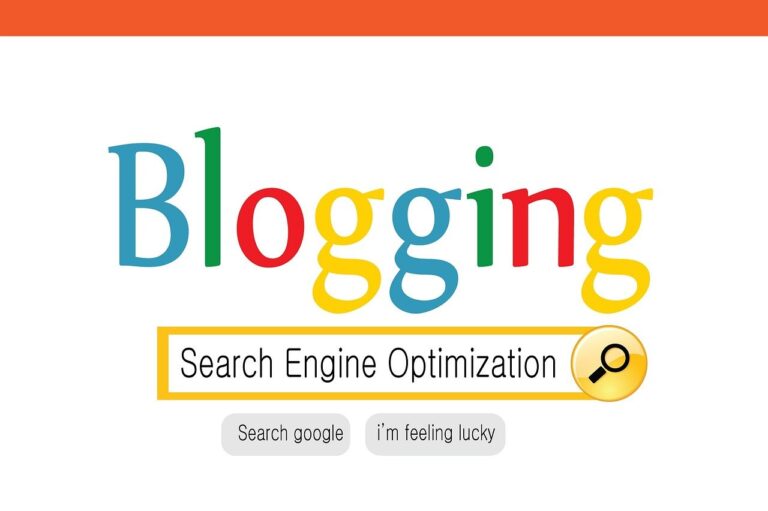Community engagement offers holistic practitioners a wealth of opportunities to grow their practice and make a positive impact. By actively participating in local events and collaborating with other wellness professionals, you can build meaningful connections that extend beyond your immediate client base.
These relationships not only support your personal and professional development but also contribute to the overall well-being of your community.

Engaging with your community allows you to expand your reach, attract new clients, and establish yourself as a trusted resource in the holistic health field. By sharing your expertise through workshops, seminars, or volunteer activities, you can educate others about the benefits of holistic practices while simultaneously growing your network.
This increased visibility can lead to new partnerships, referrals, and opportunities for growth.
Building a strong community presence also creates a robust support system for both you and your clients. When you actively engage with other practitioners and community members, you develop a network of like-minded individuals who can offer guidance, share resources, and provide emotional support.
This sense of connection not only enhances your professional life but also contributes to your own holistic well-being.
Key Takeaways
- Community engagement expands your professional network and client base.
- Active participation in local events establishes you as a trusted holistic health resource.
- Building connections creates a support system that enhances both professional and personal well-being.
The Importance Of Community Engagement For Holistic Practitioners
Community engagement plays a vital role in the success of holistic practitioners. By actively participating in your local community, you can build meaningful connections and establish trust with potential clients.
Engaging with your community allows you to:
- Increase visibility and awareness of your practice
- Develop a strong support network
- Gain valuable insights into community health needs
- Demonstrate your commitment to holistic well-being
Community-based participatory research has shown that engaging community partners at all stages of development can lead to successful outcomes in addressing health disparities. As a holistic practitioner, you can apply this principle to your practice.
By collaborating with other health professionals and community organizations, you can create a more comprehensive approach to wellness. This integration of services can greatly benefit your clients and enhance your professional reputation.
Community engagement also provides opportunities for continuous learning and growth. You can stay up-to-date with the latest trends and techniques in holistic health by attending local events, workshops, and seminars.
Remember that effective community engagement requires an understanding of culture. Being sensitive to the cultural dynamics of specific groups will help you tailor your services and communication to meet their unique needs.
Strategies For Effective Networking
Building meaningful connections is essential for holistic practitioners looking to expand their reach and impact. The following strategies can help you create a robust professional network.
Joining Local Wellness Groups
Local wellness groups offer excellent opportunities for connecting with like-minded professionals. Seek out groups that align with your practice area and values.
Attend regular meetings to establish your presence and build relationships over time. Participate actively by sharing your insights and experiences during discussions.
Consider taking on leadership roles within these groups to increase your visibility and demonstrate your expertise. This can include organizing events, leading workshops, or serving on committees.
Be open to collaboration opportunities that may arise from these connections. Partnering with complementary practitioners can lead to referrals and expanded service offerings for your clients.
Leveraging Social Media For Local Connections
Social media platforms provide powerful tools for connecting with local practitioners and potential clients. Create professional profiles on platforms like LinkedIn, Facebook, and Instagram.
Share valuable content related to your practice, such as wellness tips, client success stories, and industry insights. This positions you as an expert in your field and attracts like-minded professionals.
Join local Facebook groups focused on holistic health and wellness. Engage in discussions, answer questions, and offer support to fellow practitioners and community members.
Use location-based hashtags to increase your visibility within your local area. This can help you connect with nearby practitioners and potential clients seeking holistic services.
Attending And Hosting Workshops
Workshops offer valuable opportunities for learning, sharing knowledge, and networking with peers. Attend workshops relevant to your practice area to stay updated on industry trends and techniques.
During workshops, actively engage with presenters and fellow attendees. Exchange contact information and follow up with meaningful conversations to build lasting connections.
Consider hosting your own workshops to showcase your expertise and attract other professionals in your field. This positions you as a thought leader and creates opportunities for collaboration.
Partner with complementary practitioners to co-host workshops, combining your expertise to offer unique learning experiences. This expands your network and introduces you to new potential clients.
Participating In Local Events
Local events provide excellent opportunities for holistic practitioners to connect with their community and showcase their expertise. Engaging in these activities can expand your network, build trust, and increase visibility for your practice.
Benefits Of Community Health Fairs
Community health fairs offer a platform to educate the public about holistic approaches to wellness. You can set up an informational booth to share your knowledge and services. This direct interaction allows you to address common health concerns and explain how your practice can benefit potential clients.
Participating in health fairs helps you establish credibility within the local healthcare community. You’ll have the chance to network with other practitioners and healthcare providers, potentially leading to referrals and collaborations.
These events also provide valuable market research opportunities. By engaging with attendees, you can gain insights into the health needs and interests of your community, helping you tailor your services accordingly.
Engaging In Local Charity Events
Supporting local charities through event participation demonstrates your commitment to community well-being. You can offer your services at fundraising events or organize wellness workshops to benefit charitable causes.
This involvement enhances your reputation as a socially responsible practitioner. It shows that you care about more than just your business, fostering goodwill among potential clients and community leaders.
Charity events often attract media attention, providing free publicity for your practice. Your participation can lead to interviews or features in local news outlets, increasing your visibility and credibility.
Sponsoring Or Partnering With Local Businesses
Collaborating with local businesses can create mutually beneficial relationships. You can sponsor community events or partner with complementary businesses to offer joint services or promotions.
These partnerships can help you reach new audiences and expand your client base. For example, partnering with a local gym or health food store can introduce your services to health-conscious individuals who may be interested in holistic approaches.
Sponsorships provide branding opportunities, allowing you to display your logo and information at various events and venues. This increased visibility can lead to greater recognition and trust within the community.
By engaging in community development initiatives, you position yourself as an integral part of the local business ecosystem. This involvement can lead to referrals and long-term relationships with other business owners and community leaders.
Collaborating With Other Wellness Professionals

Partnering with fellow wellness practitioners can amplify your impact and expand your reach. By joining forces, you’ll create a supportive network that enhances client care and fosters professional growth.
Building A Referral Network
Establishing a robust referral network is crucial for holistic practitioners. Start by identifying complementary professionals in your area. Reach out to chiropractors, nutritionists, acupuncturists, and other wellness experts.
Schedule coffee meetings or attend local health fairs to connect with potential partners. During these interactions, clearly communicate your specialties and the types of clients you serve.
Create a system for tracking referrals and following up with both clients and referring practitioners. This shows professionalism and helps build trust. Remember to reciprocate by referring clients to your network when appropriate.
Consider offering a discount or special package for referred clients to incentivize collaboration. This can help you build trust and rapport with fellow practitioners, increasing the likelihood of future referrals.
Co-Hosting Events And Workshops
Collaborating on events and workshops can expand your reach and showcase your expertise. Partner with other wellness professionals to offer comprehensive programs that address multiple aspects of health and well-being.
Brainstorm ideas that combine your specialties. For example, a yoga instructor and a nutritionist could co-host a “Nourish Your Body, Mind, and Soul” retreat. A massage therapist and a meditation teacher might offer a “Stress Relief Weekend” workshop.
When planning events, clearly define roles and responsibilities. Decide how you’ll split costs, profits, and marketing efforts. Create a shared promotional plan that leverages both of your networks.
Consider offering both in-person and virtual options to maximize accessibility. Use platforms like Zoom or Facebook Live to reach a wider audience. Don’t forget to collect testimonials and feedback to improve future collaborations.
Sharing Resources And Knowledge
Pooling resources and knowledge with other wellness professionals can lead to innovative solutions and improved client care. Start a local mastermind group or join an existing one to share ideas and tackle challenges together.
Organize skill-sharing sessions where each practitioner teaches a technique or shares insights from their specialty. This cross-pollination of knowledge can enhance your practice and benefit your clients.
Create a shared resource library with books, research papers, and tools relevant to holistic wellness. Consider using a cloud-based platform for easy access and updates.
Collaborate on content creation, such as blog posts, podcasts, or social media campaigns. This allows you to tap into each other’s expertise and reach a broader audience. Remember to clearly credit all contributors and share the resulting content across your networks.
Creating A Robust Support System

Building a strong network of connections is essential for holistic practitioners. A well-developed support system provides emotional stability, professional growth opportunities, and access to valuable resources.
Emotional And Professional Support
As a holistic practitioner, you need a reliable support system to navigate challenges and celebrate successes. Connecting with like-minded individuals can significantly reduce stress and enhance your sense of belonging. Seek out peers who understand your unique experiences and can offer empathy and encouragement.
Consider joining professional associations or local practitioner groups. These communities provide safe spaces to share concerns, seek advice, and discuss industry trends. Regular meetups or online forums can help you stay connected and supported.
Remember to nurture personal relationships outside of your professional circle. Friends and family can offer different perspectives and emotional support, helping you maintain work-life balance.
Access To Shared Resources
A robust support system often includes access to shared resources that can enhance your practice. Collaborate with other practitioners to pool knowledge, tools, and facilities.
Consider these shared resource opportunities:
- Co-working spaces designed for holistic practitioners
- Shared equipment or therapy rooms
- Group purchasing for supplies at discounted rates
- Collective marketing efforts to reach a wider audience
Engaging with community resources can also provide valuable support. Local libraries, community centers, and wellness organizations often offer spaces for workshops or client meetings.
Mentorship Opportunities
Mentorship is a crucial component of a strong support system. As a holistic practitioner, you can benefit greatly from the guidance of experienced professionals in your field.
Seek out mentors who align with your values and practice areas. A good mentor can provide insights into building a successful practice. They can also offer advice on challenging client cases, help you navigate ethical dilemmas, and guide your professional development.
Building a network for success includes both receiving and offering mentorship. As you grow in your practice, consider mentoring newer practitioners. This reciprocal relationship strengthens the community and enhances your own skills and knowledge.
Remember, mentorship can be formal or informal. Regular coffee chats, shadowing opportunities, or structured programs can all provide valuable learning experiences.
Expanding Client Reach Through Community Involvement

Community involvement offers holistic practitioners powerful ways to connect with potential clients. By participating in local events and initiatives, you can significantly expand your reach and establish yourself as a trusted resource in your field.
Increasing Visibility And Credibility
Engaging in community activities puts you in direct contact with your target audience. Volunteer at health fairs or wellness events to showcase your expertise. Offer free mini-sessions or demonstrations to give people a taste of your services.
Consider hosting educational workshops at community centers or libraries. These opportunities allow you to share valuable knowledge while positioning yourself as an authority in holistic practices.
Partner with local businesses that align with your values. A collaboration with a health food store or yoga studio can introduce you to their existing client base.
Contribute articles to local publications or community newsletters. This establishes your credibility and keeps your name in front of potential clients regularly.
Building Trust With Potential Clients
Trust is crucial in holistic practice. Community involvement allows you to build relationships over time. Participate in ongoing community projects to demonstrate your commitment to local well-being.
Sponsor or organize charity events related to health and wellness. This shows your dedication to making a positive impact beyond your practice.
Be consistent in your community presence. Regular participation in local groups or committees helps people become familiar with you and your services.
Listen to community needs and tailor your offerings accordingly. This responsiveness shows that you value and understand your potential clients’ concerns.
Offering pro bono services to those in need also builds goodwill and can lead to positive testimonials and referrals.
Word-Of-Mouth Marketing
Community involvement naturally leads to word-of-mouth marketing, a powerful tool for holistic practitioners. Provide exceptional service to everyone you interact with during community events.
Encourage satisfied clients to share their experiences. Create a referral program that rewards clients for bringing in new business.
Collaborate with other health professionals in your community. Cross-referrals can expand your client base significantly.
Use social media to highlight your community involvement. Share photos and stories from events to engage your online followers.
Collect and share testimonials from community members you’ve helped. Personal stories can be incredibly persuasive to potential clients.
Remember, genuine connections lead to authentic recommendations. Focus on building real relationships rather than just self-promotion.
Educating And Positively Impacting The Local Area

Holistic practitioners can significantly influence their communities through educational initiatives and active participation. By sharing knowledge and engaging in local health efforts, you can establish yourself as a trusted resource while making a meaningful difference.
Offering Free Educational Sessions
Organize complimentary workshops on holistic health topics to educate your community. Choose themes like stress management, nutrition, or natural remedies. Host these sessions at local libraries, community centers, or parks to ensure accessibility.
Promote your events through social media and local bulletin boards. Prepare handouts with key takeaways for attendees. During sessions, encourage questions and interaction to foster engagement.
Consider collaborating with other health professionals to offer diverse perspectives. This approach can broaden your reach and provide more comprehensive information to participants.
Writing For Local Publications
Contribute articles to local newspapers, magazines, or online platforms. Focus on topics that address common health concerns in your area. Discuss the benefits of holistic approaches and provide practical tips readers can implement.
Use clear, jargon-free language to make your content accessible. Include real-life examples to illustrate your points. Offer seasonal health advice, such as natural ways to boost immunity during flu season.
Maintain consistency in your submissions to build a loyal readership. Respond to comments or queries to foster a connection with your audience.
Participating In Community Health Initiatives
Join local health fairs and wellness events to showcase your expertise. Set up an informational booth with engaging visuals and interactive demonstrations. Offer free mini-consultations or quick health assessments to attract interest.
Volunteer for community health programs focused on prevention and education. Contribute your skills to initiatives addressing specific health challenges in your area.
Partner with schools or senior centers to provide tailored health education. Develop age-appropriate presentations on topics like healthy eating habits or stress reduction techniques for different groups.
Frequently Asked Questions

Community engagement offers immense value for holistic practitioners. By fostering connections, you can enhance your practice and positively impact your community’s health.
Building trust is crucial. When you establish rapport with patients, you encourage open communication and active participation in health management.
Seek out like-minded individuals. Finding people who share your values can significantly boost your holistic health journey and professional growth.
Remember, strong community networks take time to develop. Be patient and persistent in your efforts to build meaningful relationships.
Your engagement can lead to improved health outcomes. Community participation has been shown to address health disparities effectively.
By embracing community engagement, you position yourself as a trusted healthcare partner. This approach allows you to provide more comprehensive and culturally informed care.
Ultimately, your commitment to community engagement can transform your practice. It enables you to create lasting positive change in the lives of those you serve.
Frequently Asked Questions

Community engagement is a vital aspect of holistic practice. It strengthens connections, improves health outcomes, and enhances the overall effectiveness of holistic approaches.
What are the top strategies practitioners can employ for effective community engagement?
Holistic practitioners can host free wellness workshops to educate the community. You can also partner with local organizations to expand your reach. Consider creating a community garden to promote healthy eating and social connections.
Utilize social media platforms to share valuable health information and engage with your audience. Offer virtual consultations to make your services more accessible to a wider community.
How does community engagement benefit overall population health?
Community engagement promotes well-being and positive health outcomes. It increases awareness of health issues and encourages preventive care. You’ll find that engaged communities are more likely to adopt healthy lifestyle habits.
Community involvement leads to better resource allocation for health initiatives. It also fosters a sense of collective responsibility for community health.
What are the core elements of a successful community engagement plan?
A successful plan starts with clear objectives and measurable goals. You need to identify key stakeholders and develop strategies to involve them. Create open communication channels to gather feedback and ideas from community members.
Allocate resources effectively and establish a timeline for implementation. Regular evaluation and adaptation of your plan ensure its continued success.
Can community engagement impact the quality of education, and if so, how?
Community engagement can significantly improve educational outcomes. It brings diverse perspectives and real-world experiences into the learning environment. You’ll see increased parent involvement, which is crucial for student success.
Engaged communities often provide additional resources and support for schools. This can lead to enhanced educational programs and extracurricular activities.
What are some examples of objectives for community engagement in holistic practices?
Objectives might include increasing awareness of holistic health approaches. You could aim to reduce health disparities in underserved populations. Another goal might be to create support networks for individuals with chronic conditions.
Facilitating knowledge exchange between practitioners and community members is also valuable. Consider setting targets for participation in community health events or workshops.
What best practices should holistic practitioners follow to engage with communities effectively?
Listen actively to community needs and concerns. Tailor your approaches to the specific cultural context of the community. Be transparent about your goals and methods to build trust.
Collaborate with existing community organizations to leverage established networks. Also, provide opportunities for community members to take leadership roles in health initiatives.






